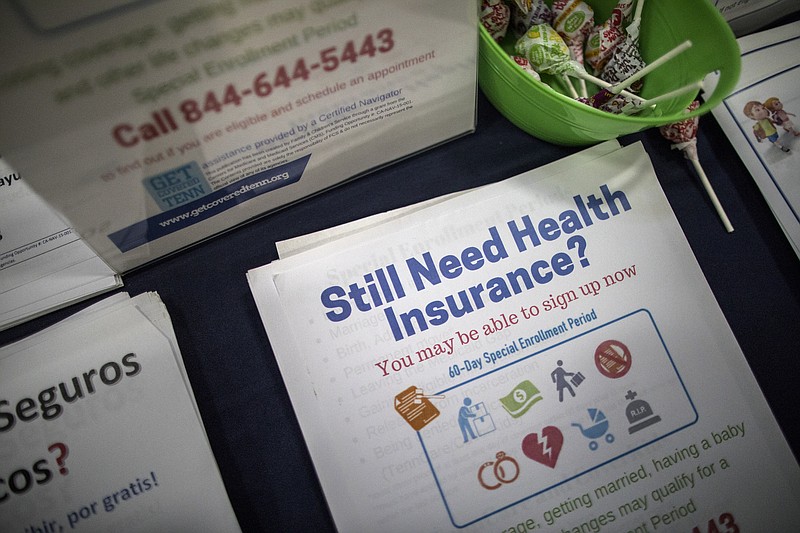It seems reports of Obamacare's demise are greatly exaggerated.
Or, more to the point, the litany of chants that the program is collapsing on itself has been just another wishful GOP lie.
The real winners and potential losers of course are the tens of millions who could lose their access to health care. The ACA had helped America's percentage of people without health insurance drop from about 20 percent to about 8.6 percent - an all-time low. And more Americans now favor Obamacare than oppose it, according to recent polls.
Nationwide, 82 counties with nearly 100,000 customers have been at some point this year at risk of not having any insurance plan options in 2018. But while the Trump administration was busy admiring itself in the mirror rather than trying to work on a viable replacement plan, state regulators were aggressively working with insurers to fill those gaps.
The states have a lot at stake. When people who aren't insured get sick, hospitals, by law, can't just turn them away. And then the hospitals turn to governments to bail them out of red ink and losses.
So now, with a little help from states, every county in the country will have at least one insurer selling Obamacare plans next year.
Paulding County, Ohio, a rural area along the Indiana border, became the country's last "bare" county to receive news that it, too, will have an insurer. CareSource agreed to offer coverage there, the Ohio Department of Insurance announced Thursday.
Thus, contrary to President Donald Trump's claims that Obamacare is "dead" and despite Congress' best efforts to dismantle the health care law, the Affordable Care Act's insurance markets are proving to be resilient. The ACA marketplace is poised for a fifth enrollment cycle this fall.
"I don't think the individual market is dead or imploding," Kathy Hempstead, head of insurance programs at the Robert Wood Johnson Foundation, told Politico this week.
What collapsed instead was the repeal legislation. And after that push flamed out in the Senate, typically risk-averse insurers rushed in to serve those bare counties - both to stablize Obamacare as a whole (after all, how would the insurance companies get paid if it did collapse?) and because they saw a chance to make more money.
Tennessee is one of those states working to hold things together.
Gov. Bill Haslam has said he will urge the Trump administration to continue federal cost-sharing payments to health insurers to stabilize the markets while Congress looks again for fixes or reforms. Haslam twice tried to get the Tennessee General Assembly to expand Medicaid to cover more working Tennesseans under the ACA under a Tennessee-specific deal he engineered with the Obama administration. Both attempts were rejected by state committees and lawmakers.
Expanding Medicaid would have helped Tennessee insurers cover still more people - and make more money.
The Chattanooga-based BlueCross BlueShield of Tennessee, the state's largest health insurer, has said it lost money during early years of the program, but this year is making money for the first time in four years from its individual plans offered on Obamacare health exchanges.
Although Tennessee's premium rates were among the lowest in the country at the outset of the ACA, Blue Cross increased premiums 36 percent in 2016 and 62 percent in 2017. BlueCross says it will seek a 21 percent increase for 2018 - despite being in the black - citing "uncertainty" over the future.
Trump's threat to pull the cost saving subsidies that Haslam will ask him to keep greatly adds to that uncertainty.
Clearly the danger isn't over.
Insurers might still bail on the marketplaces in coming weeks if Trump makes good on his threats. Those cost-sharing subsidies help insurers pay medical bills for the low-income Obamacare customers who pay the least on their premiums. Most insurers have until late September to sign contracts committing to the marketplaces in 2018.
A lot can happen in six weeks.
Trump is preoccupied with Russia and Confederate monuments. The insurers are preoccupied with keeping their premium money coming.
We'll see who has the most focus.
